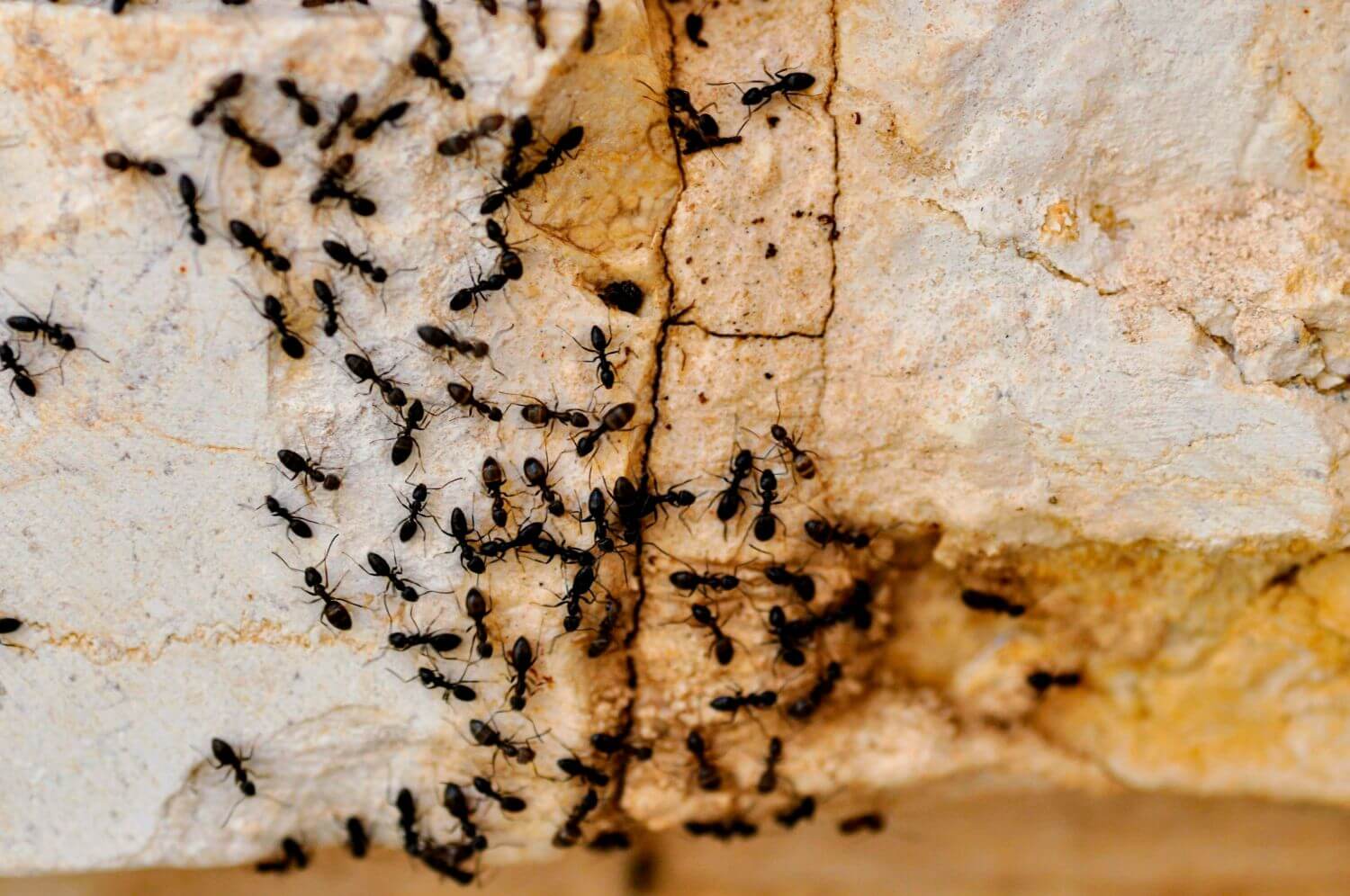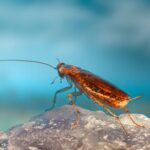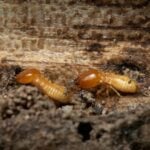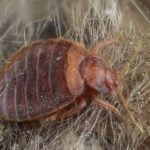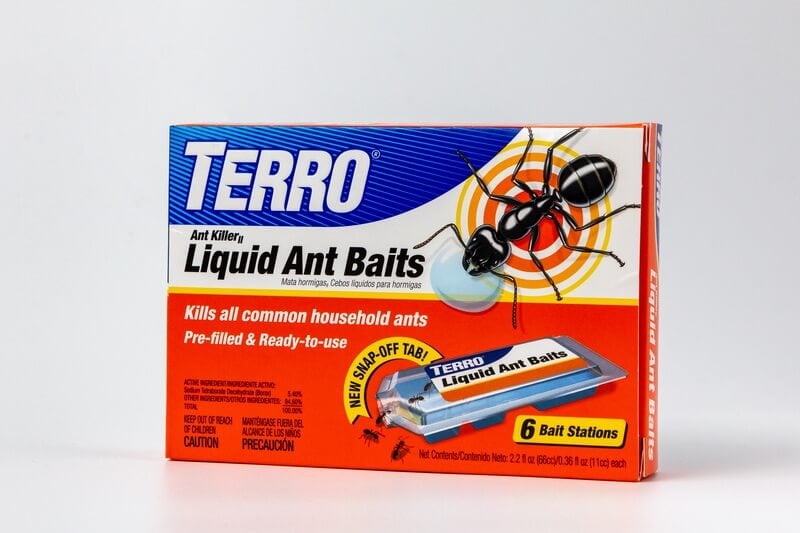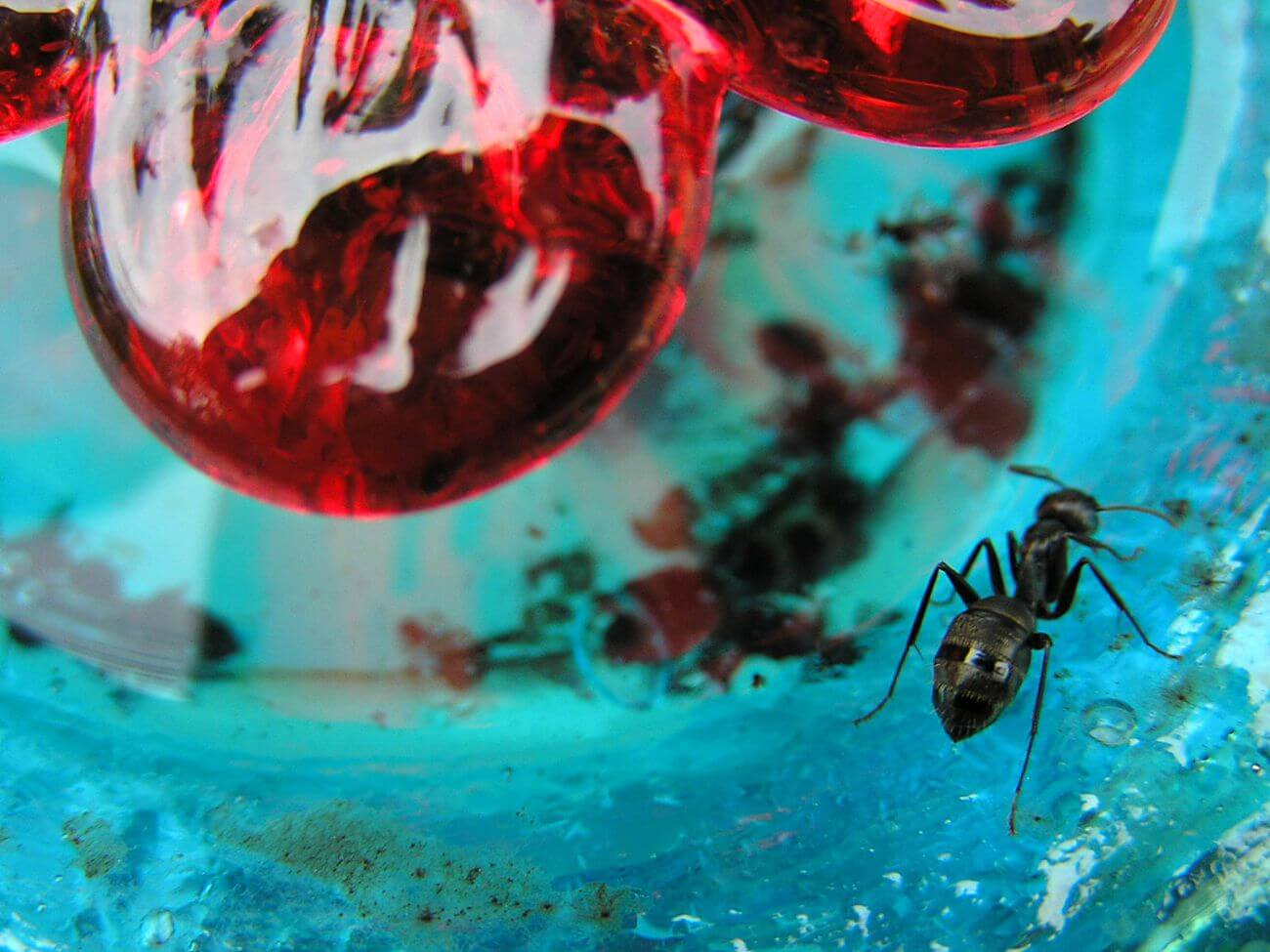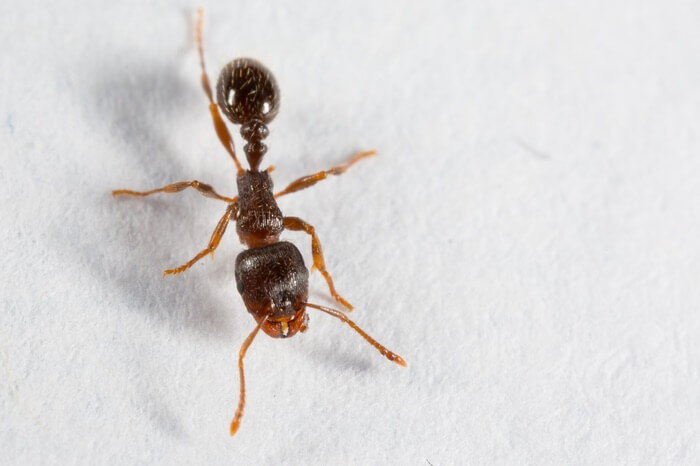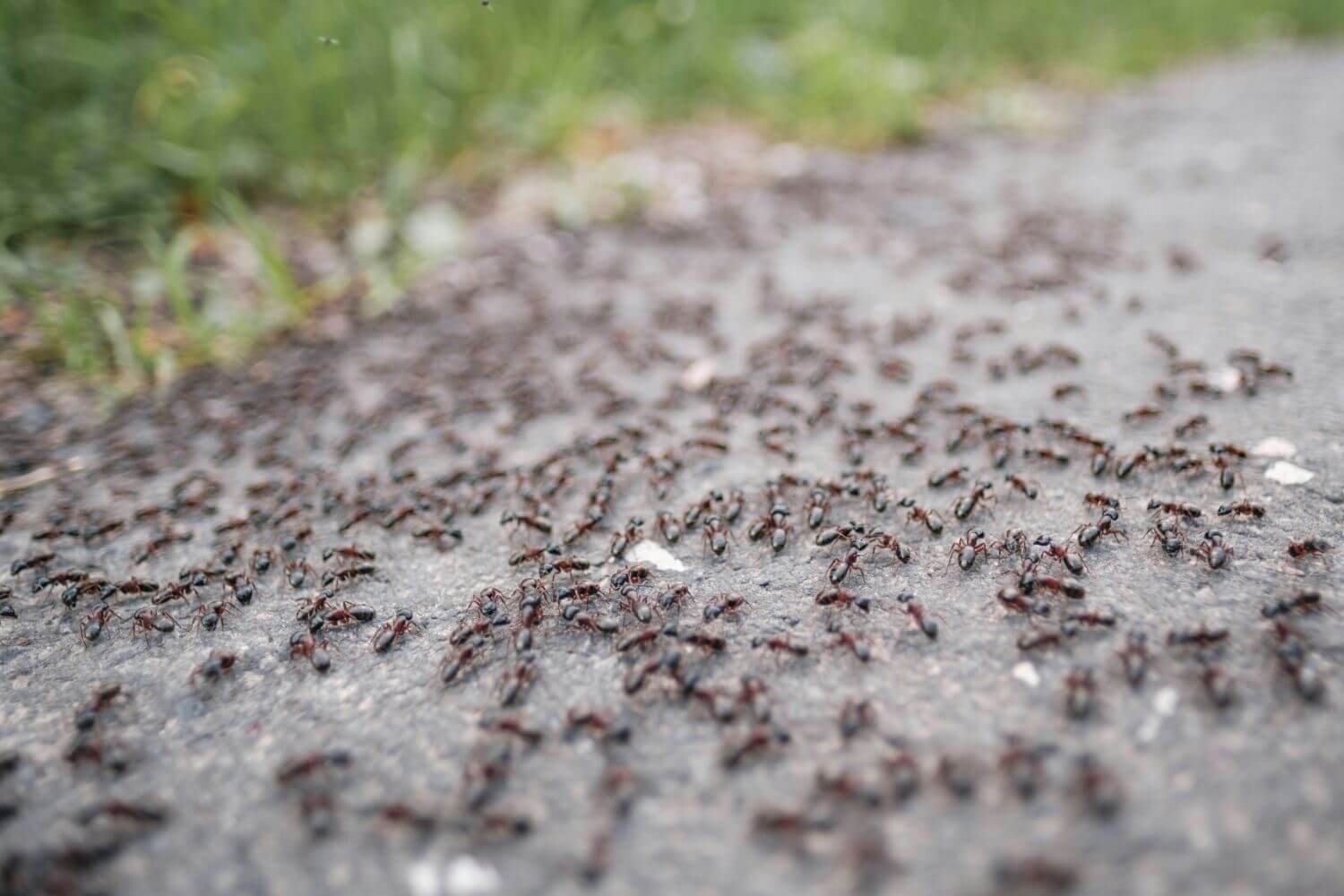Finding ants marching around is one of the most frustrating things a homeowner can face. Those tiny invaders seem to appear out of nowhere, and getting rid of them can feel impossible. Most people reach for chemical ant sprays, but these products contain harsh toxins that aren’t safe for homes with children and pets.
The good news is that essential oils to get rid of ants provide a natural, effective, and safe alternative that actually works. These plant-based solutions have been scientifically proven to eliminate ants without putting your family at risk. In this guide, you’ll learn about the different essential oils that can send ants packing for good.
Essential oils work against ants in several powerful ways. They disrupt the scent trails that ants use to navigate, mask the pheromones ants use to communicate with each other, and contain natural compounds that are toxic to these pests. When you use these oils correctly, you create an invisible barrier that ants simply cannot cross.
1. Peppermint Oil Works Like Magic Against Ants
Peppermint oil is the superstar when it comes to natural ant control. This powerful essential oil contains menthol, which ants find absolutely unbearable. The strong minty scent disrupts their ability to navigate and communicate with other ants in their colony.
Scientists have actually studied peppermint oil’s effectiveness. A 2020 research study proved that peppermint oil works incredibly well against European red ants. When ants encounter the smell of peppermint, they lose their ability to follow scent trails and find food sources.
To use peppermint oil as an essential oil to get rid of ants, you have several options. The easiest method is making a spray by mixing 10 to 20 drops of peppermint oil in 2 cups of water. Spray this mixture around entry points, windowsills, and anywhere you see ant activity. You can also soak cotton balls with peppermint oil and place them near areas where ants enter your home.
For best results, apply peppermint oil daily. The scent fades over time, so regular reapplication keeps the barrier strong. One important safety note: keep peppermint oil away from cats, as it can make them very sick. The good news is that peppermint oil is safe to use around food preparation areas when properly diluted.
2. Clove Oil Packs a Powerful Punch
Clove oil is like a secret weapon in the fight against ants. This spicy-smelling oil contains a natural compound called eugenol, which acts like a natural insecticide. Eugenol doesn’t just repel ants; it actually disrupts their nervous systems and can kill them on contact.
What makes clove oil special is that it works in two ways. First, it repels ants by masking the pheromone trails they use to communicate. Second, the eugenol compound is toxic to ants, making this oil both a repellent and a killer.
To use clove oil effectively, mix about 20 drops with water in a spray bottle. You can spray this mixture directly on ant trails and entry points. Another method is soaking cotton balls with clove oil and placing them where ants commonly enter your home. Some people combine clove oil with other essential oils to make an even more powerful ant-fighting blend.
Be careful when using clove oil because it’s very potent. Keep it away from children and pets, and never use it undiluted on your skin as it can cause irritation. A little goes a long way with this powerful essential oil.
3. Cinnamon Oil Eliminates Ants on Contact
Cinnamon oil might smell like Christmas cookies to you, but ants absolutely hate it. This sweet-scented oil contains a compound called trans-cinnamaldehyde that actually kills ants when they come into contact with it. Research has shown that cinnamon oil causes ants to have difficulty breathing, which can be fatal for them.
Scientists have studied cinnamon oil extensively and found that it shows excellent results for both repelling and killing ants. It’s particularly effective against red imported fire ants, which are some of the most aggressive ant species.
The key to success with cinnamon oil is using a high concentration. You need actual cinnamon essential oil, not just ground cinnamon spice from your kitchen. Soak cotton balls with the oil and place them at every entry point where ants might enter your home. You can also mix cinnamon oil with water to create a spray, but remember that higher concentrations work better.
Unlike some other essential oils that mainly repel ants, cinnamon oil actually kills them. This makes it an excellent choice when you’re dealing with a serious ant problem. Just make sure to place the oil-soaked cotton balls in all the right spots, as ants are clever about finding alternative routes.
4. Tea Tree Oil Disrupts Ant Communication
Tea tree oil has a strong, medicinal smell that completely overwhelms ants. This powerful oil contains antiseptic compounds that disrupt the scent trails ants depend on for navigation. When you use tea tree oil in areas where ants are active, it essentially erases their roadmap and leaves them confused and unable to find their way.
The antiseptic properties of tea tree oil don’t just mask scent trails; they actually break down the chemical compounds that ants use to mark their paths. This makes tea tree oil particularly effective for long-term ant prevention.
To use tea tree oil, mix 5 to 10 drops with 2 cups of water in a spray bottle. Spray this mixture along ant trails, entry points, and other problem areas. You can also soak cotton balls with the diluted mixture and place them strategically around your home. Some people like to combine tea tree oil with peppermint oil for an extra-strong ant-repelling blend.
However, tea tree oil comes with important safety warnings. It’s toxic to pets, especially cats, so keep it away from your furry friends. Always dilute tea tree oil before using it, and avoid using it in areas where you prepare food. Store the oil safely out of reach of children.
5. Citrus Oils Create a Toxic Barrier for Ants
Lemon, orange, and grapefruit oils are like kryptonite to ants. These bright, fresh-smelling oils contain a compound called d-limonene that is actually toxic to ants. When ants come into contact with citrus oils, the d-limonene can kill them by disrupting their respiratory systems.
Citrus oils work in multiple ways against ants. The strong scent erases the chemical trails that ants leave for other colony members to follow. The citral and limonene compounds act as powerful deterrents that make ants want to stay far away. Some citrus oils, particularly orange oil, can even suffocate ants when applied directly.
Sweet orange oil is especially effective because it contains 80 to 95 percent limonene, making it one of the most potent options. Lemon oil excels at distracting ants from food trails, essentially sending them on a wild goose chase away from your kitchen.
You can use citrus oils in several ways. Mix 10 to 15 drops of your chosen citrus oil with water and a small amount of mild dish soap in a spray bottle. The soap helps the oil mix better with water and stick to surfaces. You can also boil lemon or orange peels in water, strain the mixture, and use it as a natural ant spray.
One important note: orange oil typically doesn’t work against fire ants, so choose a different option if you’re dealing with these aggressive pests.
6. Eucalyptus Oil Confuses Ant Navigation
Eucalyptus oil has a strong, medicinal scent that ants find absolutely repulsive. This refreshing oil works by masking the food scents that attract ants in the first place. When you use eucalyptus oil in your home, it creates a confusing environment where ants can’t locate the things they’re looking for.
The powerful aroma of eucalyptus oil also disrupts the scent trails that ants use like highways to navigate between their nest and food sources. When these trails are masked or erased, ants become disoriented and usually decide to look elsewhere for food.
Eucalyptus oil is versatile and easy to use. You can dilute it with water and spray it around entry points and ant trails. Placing cotton balls soaked with undiluted eucalyptus oil near problem areas creates strong scent barriers that ants won’t cross. You can even use eucalyptus oil in a diffuser to protect entire rooms from ant invasions.
This oil has some great bonus benefits too. It’s generally safe to use around pets (though you should check with your vet first), and it has antifungal properties that make it perfect for damp areas like bathrooms where ants might be attracted to moisture. Plus, most people love the spa-like aroma that eucalyptus oil adds to their homes.
7. Lavender Oil Disrupts Ant Scent Trails
Lavender oil might be famous for helping people relax, but it has the opposite effect on ants. The strong floral scent that humans find calming actually disrupts ant scent trails and creates a confusing environment that makes it impossible for ants to navigate effectively.
When ants encounter lavender oil, they lose their ability to follow the chemical highways that lead them to food sources. The overwhelming fragrance essentially scrambles their GPS system, leaving them unable to complete their missions. This confusion usually causes ants to give up and look for easier targets.
Lavender oil is one of the safest essential oils to get rid of ants, making it perfect for families with children and pets. You can create a spray by mixing 10 to 20 drops of lavender oil with 8 ounces of water. Spray this mixture around ant-prone areas to create protective barriers.
Another effective method is placing dried lavender bunches in areas where ants commonly appear. The natural aroma from dried lavender creates a long-lasting deterrent that looks attractive in your home. You can also soak cotton balls with lavender oil and position them strategically near entry points.
For best results, you can even use lavender oil undiluted in very small amounts directly at entry points. This creates an extra-strong barrier that ants simply won’t cross.
8. Thyme Oil Provides Scientific Ant Control
Thyme oil contains a powerful compound called thymol that acts as a natural insect repellent. This isn’t just folk wisdom; scientists at the University of Mississippi have actually studied thyme oil and found that it works as well as some synthetic insecticides for controlling fire ants.
The research showed that thyme oil is particularly effective against fire ants, which are some of the most difficult ants to control. The thymol compound disrupts ant behavior and makes treated areas completely unappealing to these pests. Thyme oil also repels other insects like moths, making it a great all-around pest control solution.
You can use thyme oil in several ways. Mix it with water in a spray bottle and apply it to ant trails and entry points. If you have fresh thyme, you can also steep the leaves in hot water, strain the mixture, and use the thyme-infused water as a natural ant spray.
Essential thyme oil can be applied directly to entry points in small amounts, but always dilute it when spraying larger areas. Some people like to combine thyme oil with other essential oils to create custom ant-fighting blends.
The scientific backing behind thyme oil makes it an excellent choice for people who want proven results. Knowing that university researchers have tested and confirmed its effectiveness gives you confidence that you’re using a method that really works.
9. Lemongrass Oil Stops Ants in Their Tracks
Lemongrass oil contains a compound called citral that completely disrupts ant communication and navigation. This bright, energetic scent interferes with the ability of ants to follow pheromone trails and locate food sources. When ants encounter lemongrass oil, they become confused and disoriented.
The citronellal in lemongrass oil helps repel multiple insects, not just ants. This makes lemongrass oil a great choice for general pest prevention around your home. The strong citrusy scent essentially scrambles the chemical signals that ants rely on to coordinate their activities.
Using lemongrass oil is simple and effective. Mix a few drops with water in a spray bottle and apply it to entry points and ant trails. The bright, fresh aroma makes lemongrass oil particularly nice to use in kitchens and other living areas where you want your home to smell clean and inviting.
Lemongrass oil works quickly to stop ants in their tracks and send them looking elsewhere for food. Many people notice results within hours of applying lemongrass oil to problem areas. The key is applying it consistently and reapplying as the scent fades.
10. Rosemary Oil Creates Natural Ant Barriers
Rosemary oil contains camphor and other natural compounds that ants absolutely cannot tolerate. The strong herbal scent disrupts ant communication and creates an environment that ants find completely inhospitable. Research has shown that rosemary oil is effective at killing insect larvae and disrupting pest life cycles.
What makes rosemary oil special is that it’s completely non-toxic to humans and pets. You can use it freely around your home without worrying about safety issues. This makes rosemary oil perfect for families who want effective ant control without any risk.
To use rosemary oil effectively, mix 5 to 10 drops with 16 ounces of water in a spray bottle. You can spray this mixture directly on plants without harm, making it great for outdoor ant control. For indoor use, spray the mixture around entry points and ant trails.
You can also use fresh rosemary sprigs as a natural ant deterrent. Place sprigs near entry points where ants commonly appear. For extra effectiveness, combine fresh rosemary with rosemary essential oil by applying a few drops of oil to cotton balls and placing them alongside the fresh herbs.
Rosemary oil has the added benefit of being useful in cooking, so you’re getting a dual-purpose herb that can help both in the kitchen and with pest control.
11. Citronella Oil Kills Ants on Contact
Most people know citronella oil as a mosquito repellent, but it’s also incredibly effective against ants. Citronella oil doesn’t just repel ants; it actually kills them on contact. The compounds in citronella oil disrupt insect nervous systems, making it a powerful weapon in your ant-fighting arsenal.
When you spray citronella oil directly on ants, it acts quickly to eliminate them. The strong scent also provides lasting protection by creating a barrier that other ants won’t cross. This dual action makes citronella oil particularly effective for both immediate ant elimination and long-term prevention.
To use citronella oil, spray it directly on ants and ant trails for immediate results. You can also create protective barriers by spraying citronella oil around entry points and areas where you want to prevent ant invasions. For outdoor areas like patios and gardens, citronella oil provides excellent protection against both ants and mosquitoes.
The fact that citronella oil works against multiple types of pests makes it a great value for homeowners. You can protect your outdoor entertaining areas from both ants and mosquitoes with a single natural solution.
12. Essential Oil Combinations Provide Maximum Power
While individual essential oils work well against ants, combining different oils creates even more powerful ant-fighting solutions. The best essential oils to get rid of ants work together through different mechanisms, making it much harder for ants to adapt or find ways around your defenses.
Some of the most effective combinations include peppermint, clove, and citrus oil mixed together for a triple-threat approach. Equal parts peppermint and tea tree oil create a potent spray that attacks ants through multiple pathways. Lemon and eucalyptus oil work together to create a fresh, powerful combination that ants absolutely hate.
For a sweet-smelling deterrent, try combining lavender and cinnamon oil. This mixture provides both repelling and killing action while creating a pleasant aroma in your home.
Here’s a master recipe that combines the best essential oils to get rid of ants: Mix 4 ounces of water with 4 ounces of witch hazel and 2 teaspoons of liquid castile soap. Add 50 drops of citrus oil, 30 drops of peppermint oil, and 20 drops of clove oil. Shake the mixture well and spray it liberally on affected areas.
This combination recipe attacks ants through multiple mechanisms. The citrus oil contains toxic d-limonene compounds, the peppermint oil disrupts navigation, and the clove oil provides killing power through eugenol. The witch hazel helps preserve the mixture, while the soap helps everything blend together and stick to surfaces.

